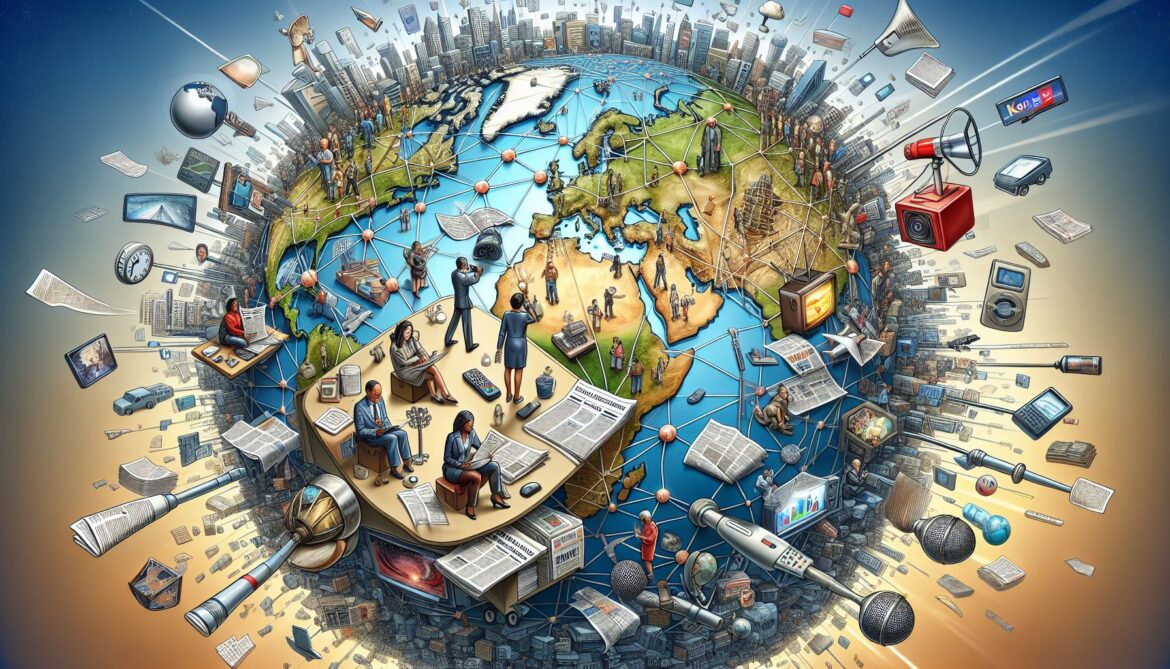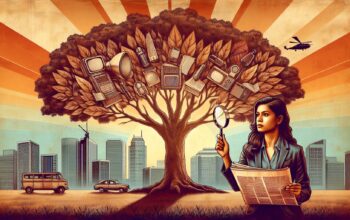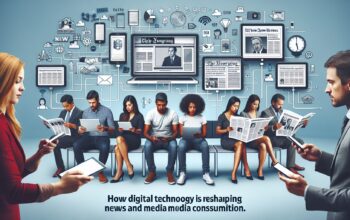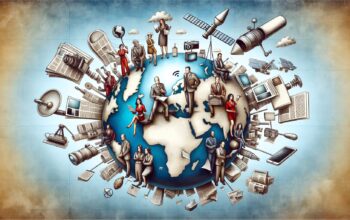
 In this era of information saturation, the role of news and media has never been more critical. Keeping ourselves abreast of global events enriches our understanding, enables us to make informed decisions and draws us closer to the world we live in. However, the burgeoning digital age has reshaped the landscape of news media, presenting a myriad of opportunities and challenges. Let’s ponder on these significant transformations highlighting key global events, and examine how they influence not only the media industry but our everyday lives.
In this era of information saturation, the role of news and media has never been more critical. Keeping ourselves abreast of global events enriches our understanding, enables us to make informed decisions and draws us closer to the world we live in. However, the burgeoning digital age has reshaped the landscape of news media, presenting a myriad of opportunities and challenges. Let’s ponder on these significant transformations highlighting key global events, and examine how they influence not only the media industry but our everyday lives.
The Digital Era: A Double-Edged Sword For News
The advent of the digital age has revolutionized how we consume news. Mainstream media is grappling with this change, evident in significant global events that have transpired recently. The predominant crisis in Ukraine, the pandemic, climate change, and political events around the world have been vividly relayed to us not only through traditional news outlets but also through social media.
Platforms such as Twitter, Instagram, and Facebook have empowered citizens across the globe to share their experiences on-ground, deliver breaking news in real-time, and even challenge state-controlled narratives. This novel form of citizen journalism has undeniably reshaped our understanding of world events. However, it brings along a vital question – how can we validate the veracity of these sources?
The Battle for Journalistic Integrity
In the face of constantly evolving digital challenges, maintaining journalistic integrity has turned into a monumental task. The online space is rife with misinformation, deep fakes, and echo chambers – each posing a severe threat to balanced reporting and the viewers’ understanding of events.
Dedicated fact-checkers and increasingly stringent social media regulations attempt to curb this menace. Yet, the rapid pace of digital content production often outpaces the remedial measures, enabling misinformation to spread before it can be halted. It’s an uphill battle, but one that is integral to the role media plays in an informed society.
The Role of Media: Being the Fourth Pillar
Media is often referred to as the ‘Fourth Pillar’ of democracy, emphasizing its crucial role in shaping public opinion, awareness, and eventually, policy decisions. Less tangible, but no less critical is the media’s influence on communal harmony, societal norms, and cultural ethos.
Recent global protests from Black Lives Matter to Climate Strikes have demonstrated the media’s power not just in raising awareness but in mobilizing global communities. Thus, the weight and responsibility carried by the media are immense, adding to the urgency and importance of addressing the challenges of the digital era.
As we reflect on the role of news in our lives, it’s evident that staying informed isn’t just about being up to date; it’s about understanding the complex world around us. Furthermore, it’s a call for each one of us to embrace the importance of media literacy in the digital age. It prompts us to critically examine the way we engage with news, encouraging us to seek out diverse sources, fact-check information, and engage in constructive dialogues.
In a world where we’re inundated with news, elevating our consumption from mere information intake to critical analysis is critical. Not just for us as individuals, but for society as a whole. The state of our news is not merely a reflection of our past, but an insight into our present and a forecast of our future.
Next: A New Wave in Entertainment: Streaming Services & the Reshaping of Media Consumption



